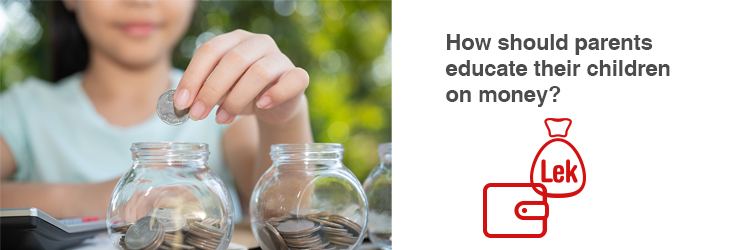
Independent from this discussion, there is an inevitable reality that we should teach our children about money, saving, expense, and budget concepts to prepare them for real life. Another important factor for the financial education of children is timing. By the time children are old enough to receive pocket money and begin to reach puberty, they must be quite knowledgeable about how money works in society. Money is a tool, and it's really important to have it for whatever purpose.
One of the first things parents should teach their children is the importance of saving money. Every family has its own set of money rules, and these rules should teach the child that he or she cannot spend all of his or her money.
Setting aside money is absolutely essential, because cash that is set aside for all kinds of emergencies works very well. Even a child should learn that if she /he accumulates the money, some targets become achievable and it teaches about economic freedom.
In addition to savings, having a basic understanding of investing and compounding can be valuable. For example, legendary investor Warren Buffet calls compound interest an investor's best friend. Even small amounts become bigger in the long run, so it should be taught together with the concept of debt and interest. They should understand that money is not unlimited and that you may use it whenever you want by withdrawing it from an ATM. Even spending money can be a debt or limit usage from a bank card or overdraft that is not an asset of the family. They are just possibilities that can be used in cases of need, and they have to be paid back.
Introducing children to common financial documents at an early age can also help them grasp important money concepts. This can be as simple as a credit card statement or account statement. When you use a credit or debit card, that doesn't mean you have unlimited access to the virtual amounts inside it. Show your child your credit or debit card statement and explain things like your balance and your credit limit. You can also teach your kids how life works by showing them expenses related to them (like a summer camp payment or a desired toy). Ultimately, help your children understand that everything takes effort and money.
Children should also have a general understanding of taxation. The fact is that every person in society pays taxes. Help them understand the tax when they buy things for themselves and the sudden increase in price.
Helping kids learn about taxes when they're young can help them avoid unpleasant surprises when they start making their own money.
A.Shehu



